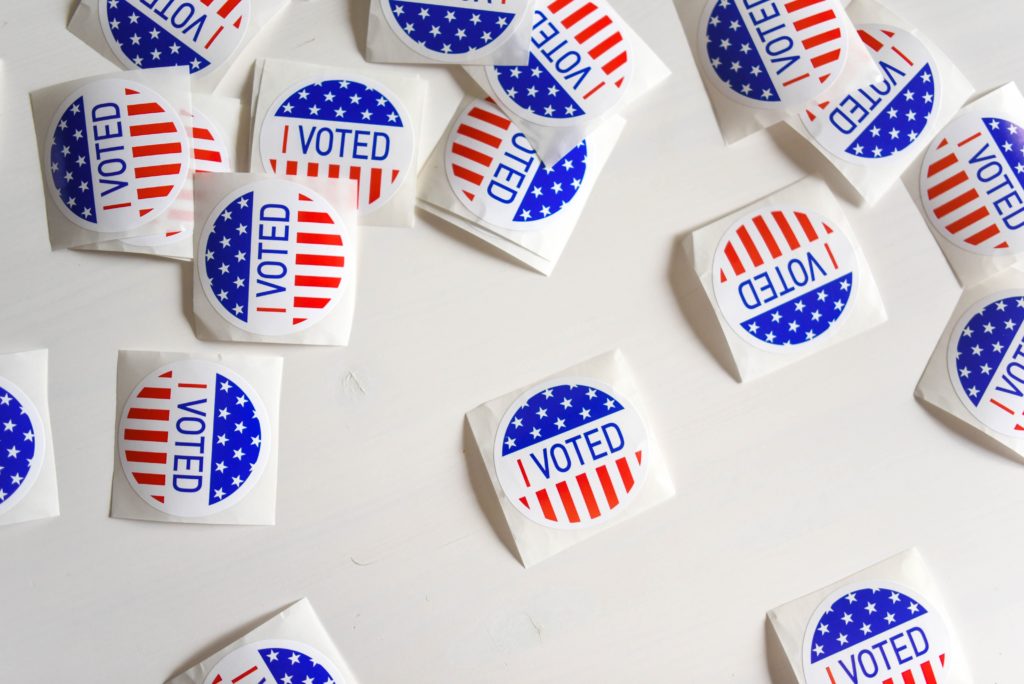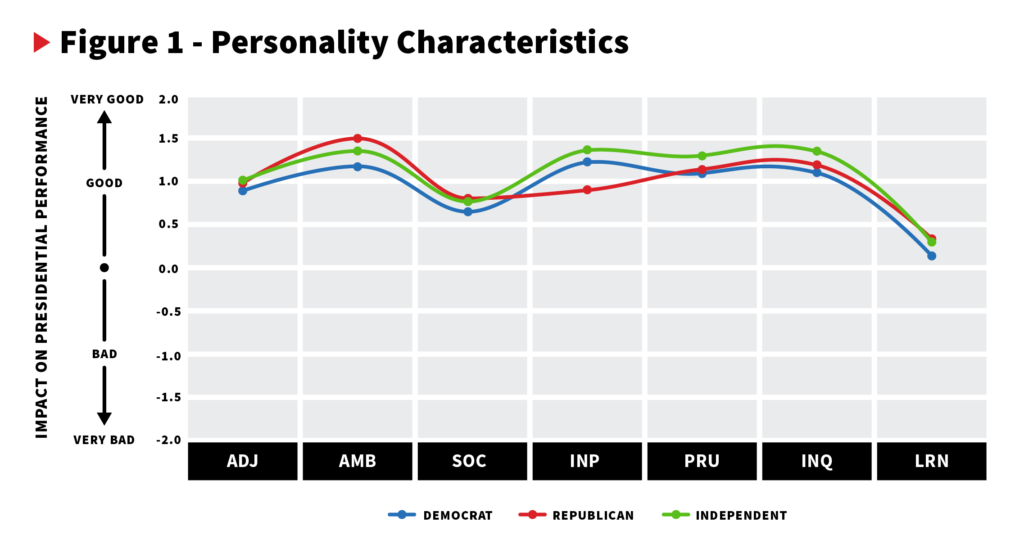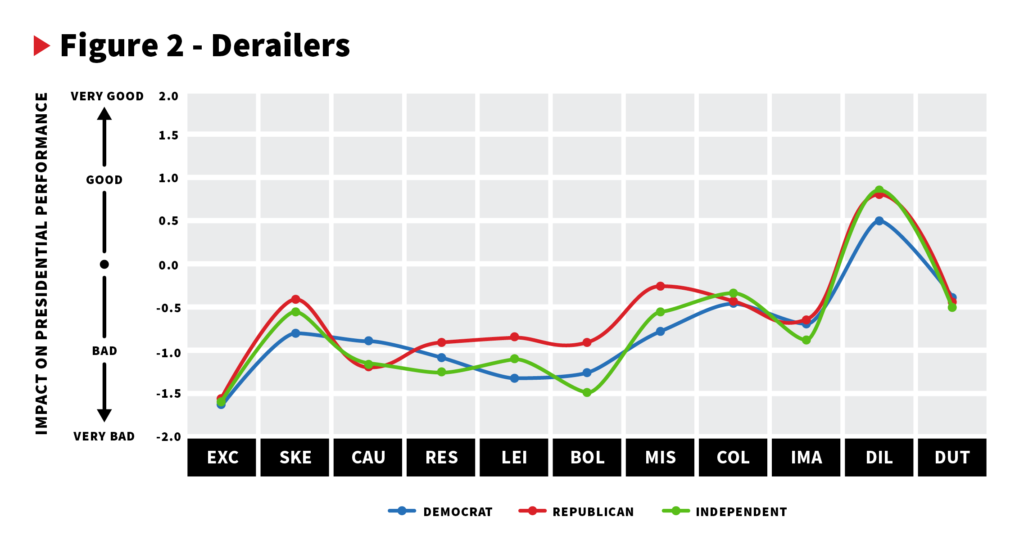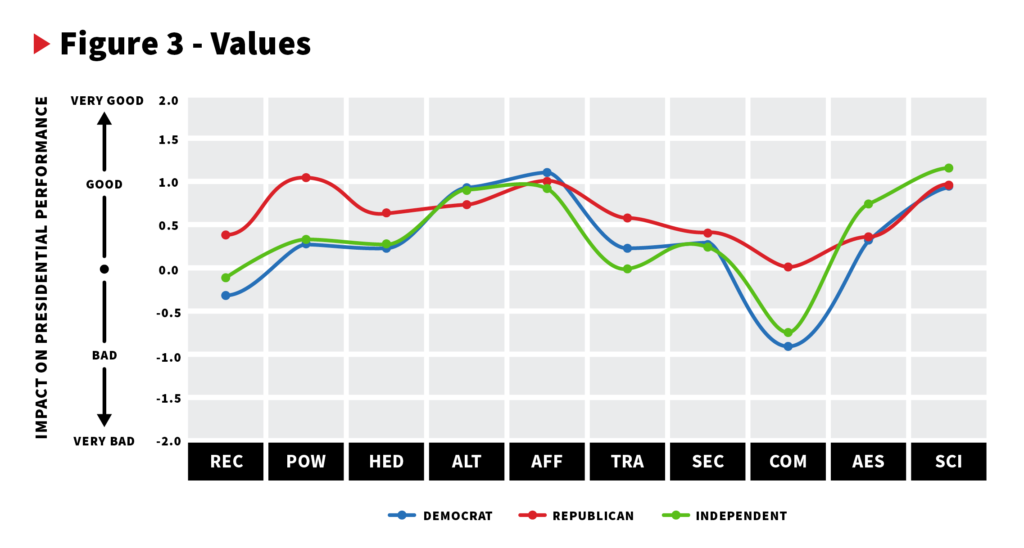
It’s almost Election Day 2020 in the United States, and political tensions are historically high. This year has been saturated with massive protests for social justice, violent riots, foreign interference in democratic processes, economic recession, reemergence of the white supremacy movement, widespread scandals involving political officials, presidential impeachment trials, political clashes over government response to the pandemic, record-breaking natural disasters, and general social chaos. It’s been a year for the history books, to say the least. In fact, public opinion is so divided that some are skeptical that presidential power will transfer peacefully at the close of the election. Like most Americans, we can’t help but wonder: Who should be president?
Yet, as personality and data scientists, we aren’t concerned with who should be president in terms of identity, political party, or rhetoric. As expert performance forecasters, we care more about known scientific predictors of success: personality characteristics. A couple of years ago, we reported research suggesting the American public agreed on the personality characteristics an ideal U.S. politician should have, regardless of political affiliation.
Presidential Personality
But then came 2020. Surely, in this even more divisive climate just before Election Day, the American public would vigorously disagree on what personality characteristics an effective U.S. president embodies. Right?
Wrong! Not even the destructive reign of 2020 can thwart the unifying power of personality. Over the past couple of weeks, we collected data to check in with U.S. citizens. This time, given the proximity to the presidential election, we asked participants to rate the desirability of personality characteristics, derailers, and values for an ideal presidential personality, specifically. We even used our new and improved Hogan Job Evaluation Tool (JET) 2.0, which is calibrated to pick up on finer distinctions.
We again found no meaningful differences among democrats, republicans, and independents in preferred characteristics of the ideal U.S. president.
The Bright Side of Presidential Personality
Differences in political party ratings were not statistically significant on any of the Hogan Personality Inventory (HPI) scales, which measure bright-side personality characteristics (figure 1). In other words, our statistical wizardry found no evidence that participants rated bright-side personality characteristics differently across political parties. However, although not statistically significant, ratings differ slightly for the Interpersonal Sensitivity scale, suggesting that republicans prefer their ideal president to have a more direct communication style.
As shown in Figure 1, all three political parties felt that an ideal U.S. president should exhibit a calm demeanor (Adjustment), drive (Ambition), kindness (Interpersonal Sensitivity), rule compliance (Prudence), and openness to diverse perspectives (Inquisitive).

The Dark Side of Presidential Personality
Figure 2 shows little difference in participant ratings of derailers that could impede presidential performance, which are measured by the Hogan Development Survey (HDS). All three political parties rated emotional outburst (Excitable), resistance to change (Cautious), social insensitivity (Reserved), and arrogance (Bold) as bad for presidential performance.

Although there was a slight statistical difference between democrats and republicans regarding the perceived impact of passive aggression (Leisurely), this gap has little practical effect. Democrats rated qualities associated with the Leisurely scale as bad for presidential performance, and republican ratings fell just below this threshold. In other words, although democrats might want a president who has a diplomatic communication style (HPI Interpersonal Sensitivity), they also find it disruptive to have a president who might agree outwardly but then take action counter to that agreement (HDS Leisurely). Participants identifying as independent did not rate Leisurely characteristics in a significantly different way from democrats or republicans. And no party rated Leisurely tendencies as good. There were no other statistical differences across these derailers.
The Inside of Presidential Personality
Research has shown that personal values predict presidential support. Nonetheless, we found no practical differences among the values democrats, republicans, and independents believe the U.S. president should hold, based on participants’ ratings of the Hogan Motives, Values, Preferences Inventory (MVPI) scales (figure 3). Specifically, participants rated values for collaboration (Affiliation) and data-based problem-solving (Science) highest.

Commerce is the only value where we found statistical differences between republicans and democrats. These findings suggest that while republicans think monetary concerns (Commerce) are not an important driver for performance, democrats think being financially driven could be detrimental to performance. However, no group’s ratings fully crossed the threshold of good or bad. Thus, on average, Commerce was not significantly relevant to presidential performance.
Conclusion
This emphasizes the impact of in-group and out-group tribal psychology. When we strip away the political party (i.e., group membership) of the candidate and focus on more objective indicators of job performance, such as personality characteristics, we see people’s opinions come together and indicate they tend to agree overall.